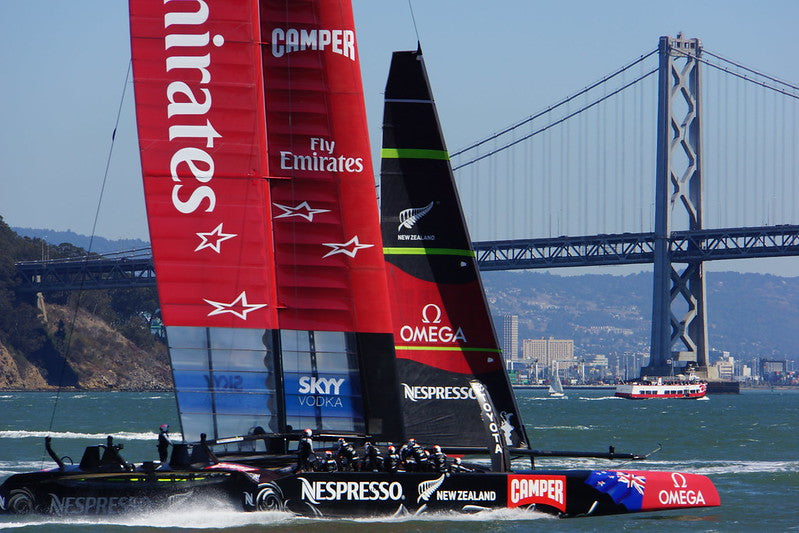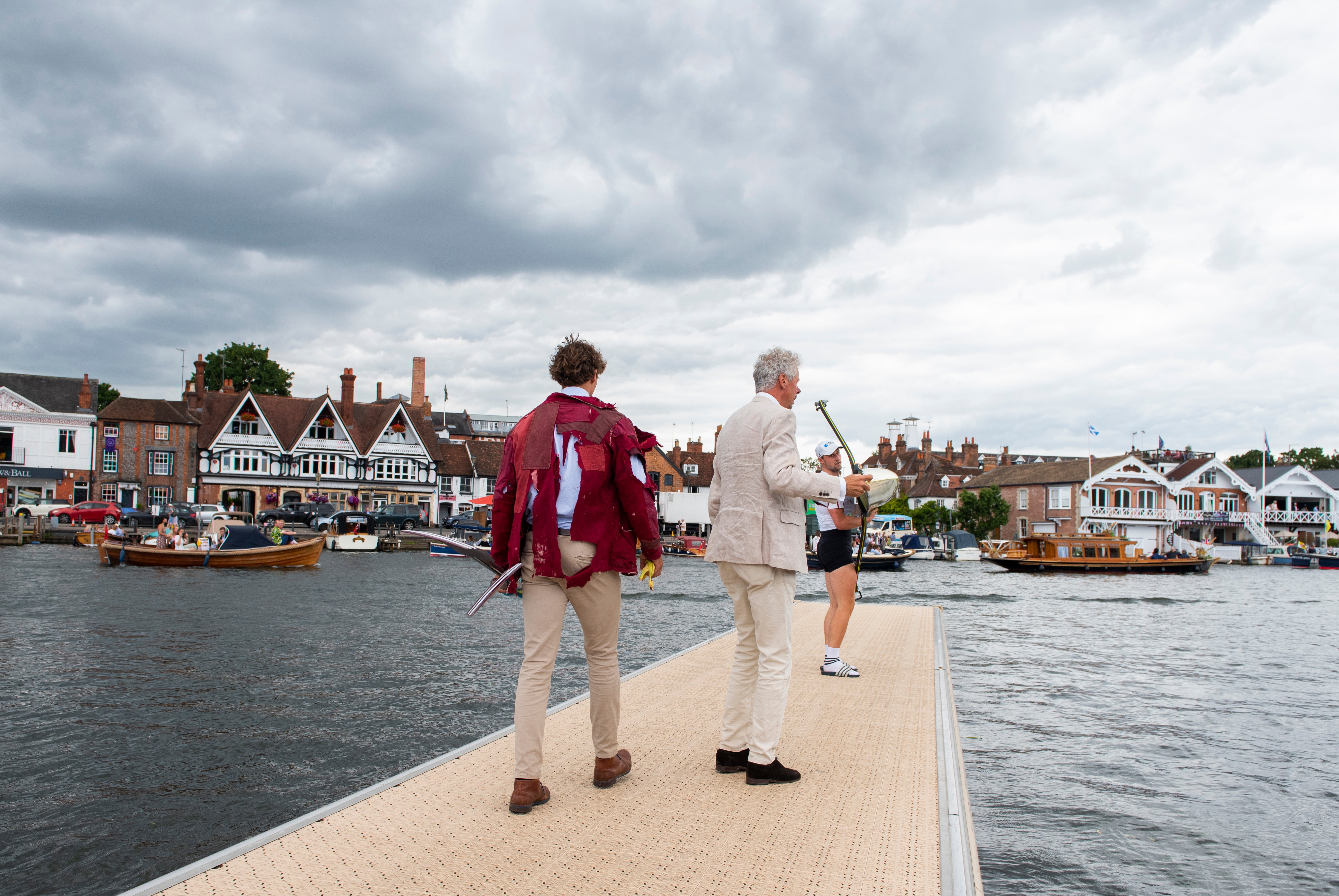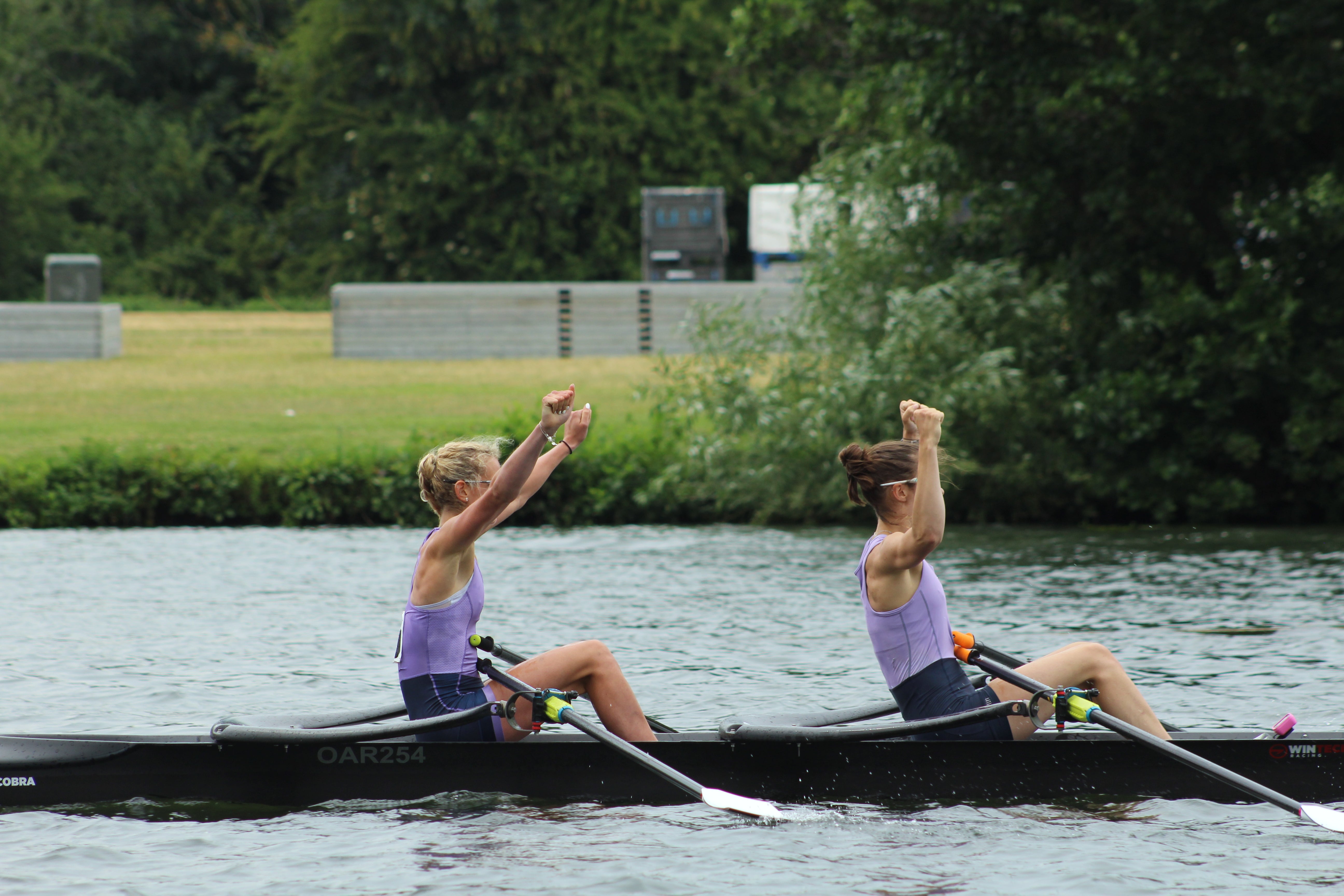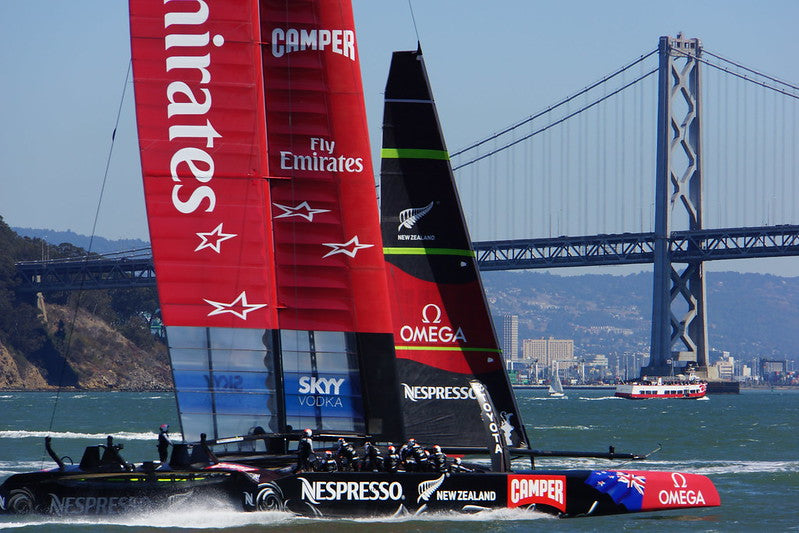Racing On New Waters: From Rowing To Sailing

When INEOS Britannia announced that Harry Leask, Olympic silver medallist in the quad scull in Tokyo, had joined their team for the upcoming Americas Cup, the news was not greeted with any great surprise in the rowing community. This is a growing trend; elite rowers making the transition into sailing after cutting their career in smaller boats short.
The question remains – what is causing this talent drain in rowing and how can our sport motivate top-level athletes to ply their considerable resource into our national teams? We spoke with three athletes who have recently made the transition to find out what prompted them to switch an oar for a yacht.
Leask joined up with the INEOS team a couple of months ago and has been acclimatising to his new surroundings. “The switch has gone really well,” he told us. “I’ve always loved spending time on my bike and did as much as I could in my rowing training, so I kind of knew what I was in for.”
"I wanted a bigger challenge – what’s bigger than trying to win the oldest trophy in sport..."
The competitive streak that Leask harnessed during his rowing career was something that, ironically, helped to drive him out of the sport. “I wanted a bigger challenge – what’s bigger than trying to win the oldest trophy in sport which has never previously been won by a British team?” he explained.
Barnabe Delarze announced his retirement from rowing last year after spending nearly a decade in the Swiss national team and competing at two Olympic Games. He now trains for Alinghi Red Bull Racing as a ‘cyclor’ – the same role that Leask has taken on for INEOS. “In the Swiss Olympic rowing team, it was the classic ‘train, eat, sleep, repeat’ three times a day, six days a week,” he said. “At Red Bull, we train almost as much but have to attend meetings, help with the development of the boat, take part in media events, etc. There are over 100 employees working in various fields, all interacting with each other, so it feels closer to a ‘real’ job in a big company.”
"Most national teams are caught up in an old-fashioned centralised system"
Delarze’s view on the sport of rowing will come as no surprise to those who feel the discipline has been left behind in the technology and consumer arms race. “Most national teams are caught up in an old-fashioned centralised system and rely way too heavily on the diminishing fame and glory of competing at the Olympic Games,” he said. “Other traditional sports are putting a huge amount of effort into capturing a larger and younger audience by producing high quality, action-packed content.”
The burden placed on an Olympic rower is significant. The expectation is that you train and perform throughout the Olympiad cycle (up to four years) with little to no respite or recognition. “Athletes are still required to give up all aspects of social life (no weekends, almost no holidays and gruelling training from dawn to dusk) for almost no appreciation nor money,” said Delarze. “It is simply not sustainable anymore and we see an increasing number of talented rowers retiring at a much earlier age than before.”
"It mostly came down to not enjoying rowing as much as I used to but I wasn’t ready to leave sport."
Leask was slightly more conservative, but the messaging was the same. “Choosing to leave rowing wasn’t a small decision or one I made overnight,” he said. “It mostly came down to not enjoying rowing as much as I used to but I wasn’t ready to leave sport. So, to get the amazing opportunity to be a cyclor for INEOS Britannia and take on a new challenge was one I couldn’t resist.”
So, why sailing of all sports? “From a performance point of view, the switch has been pretty seamless,” explained Delarze. “’Grinders’, now called ‘cyclors’ are using their legs to power the systems and the time frame we are training for – an America’s Cup race is around 25min – is relatively close to what we are used to in rowing.”
“I think the reason rowers are a great proposition for sailing is down to both advanced aerobic capacity and a powerful lower body,” added Leask. “Both of these aspects lend themselves quite well to producing power on a bike.”
What the two sports, and indeed the two athletes, share is a common focus and drive towards victory – something they will have picked up whilst rowing and that will prove invaluable in their pursuit of newfound glory. Leask summed it up best when asked what his ambitions were in his new sport: “That is quite simple – to win the Americas Cup.”
Words by Junior Rowing News
Photo by Yasuhiro Chatani








